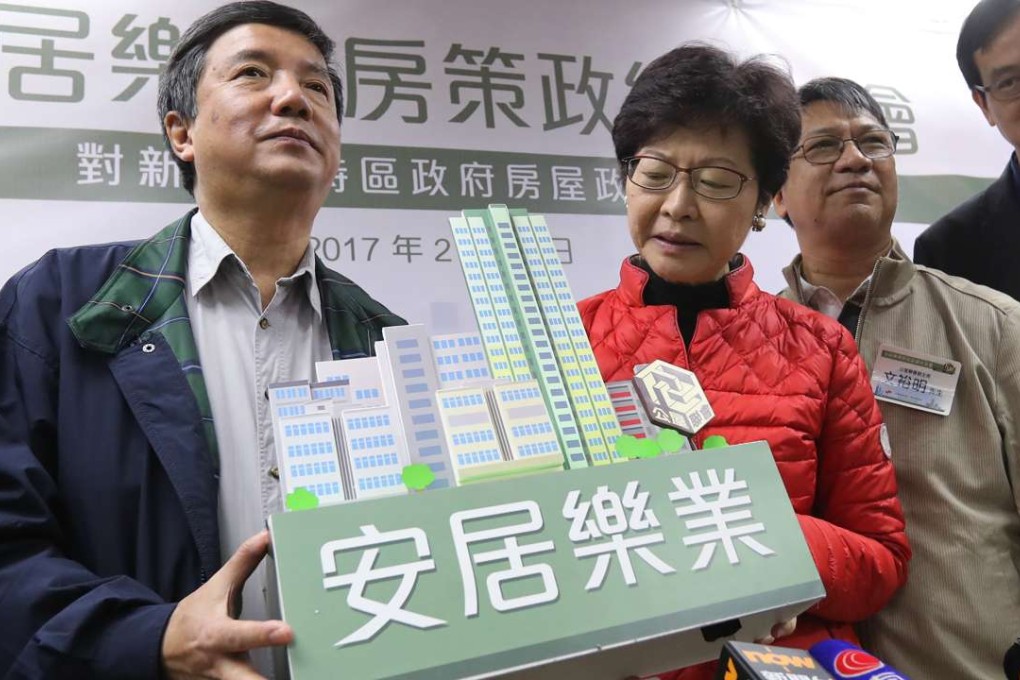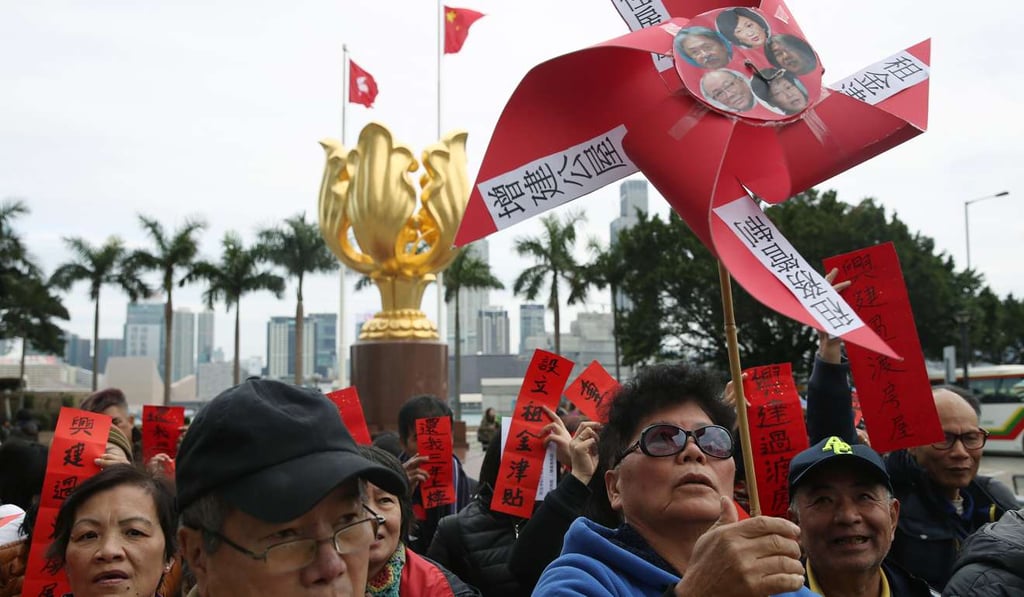Carrie Lam should crack down on property speculators in Hong Kong if she really wants to gain public support and respect
Tony Read calls on the chief executive-elect to introduce curbs on wealth accumulation from property speculation, to ensure affordable housing is available for those who need it

Chief executive-elect Carrie Lam has pledged to heal the divide in Hong Kong society and listen to the people. While she has no shortage of issues to tackle, there is one which the present government has already pledged to address and has a strategy for – providing affordable housing. The government has rightly realised that this is the top aspiration for most people, as the ability to own a home is seen as the main source of personal economic stability and long-term security.
In ancient Israel, the ability to own and farm your own plot of land was your source of livelihood in the largely agrarian economy. But, during adversity or drought, a farmer might have to sell his plot to feed his family. This enabled those with financial resources to accumulate land and grow richer at the expense of others. This was at the root of a potential poor-rich gap. However, the law set a limit on the extent to which that gap could grow, by requiring that the land had to be returned to its original owner every 50 years – thus resetting the economic balance.
Radical rethink needed to find solutions for HK’s housing woes
Leaders often talk about bringing people together to discuss differences and forge a consensus. The problem is people first need to be convinced that it will be a productive process and not just an endless talk shop. Also, those sitting around the table often wield very different levels of influence. So those with the most power must give notable concessions in advance, or at least offer to curb their powers, in order to develop trust and enable those who feel disempowered to engage and contribute positively.
Watch: Carrie Lam visits Hung Hom amid pledges of people-based governance
The current government approach to tackling the housing problem in Hong Kong is to provide more land to build homes, based on the free-market principle that increasing supply will bring down prices. But this alone is not going to bring a home within reach of those who need it. The strategy seems more likely to bring added opportunities for those who already have properties and wealth to increase their portfolios, at the expense of those who really need a home of their own.
Like ancient Israel, Hong Kong needs to institute effective curbs on the unchecked accumulation of wealth via property speculation in order to control purchase prices; and design purchase restrictions to ensure that local residents who are first-time owner-occupiers can buy property at affordable prices.

Will Hong Kong’s next leader dare to stop selling land to the highest bidder?
A genuine attempt to reverse policies leading to economic injustice will not only boost public support but also bring her much-needed respect from those looking for a bold and caring leadership.